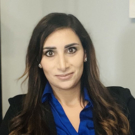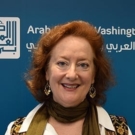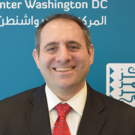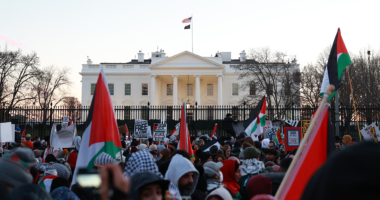
Speakers

Martin Griffiths
Former Under-Secretary-General for Humanitarian Affairs and Emergency Relief Coordinator, Office for the Coordination of Humanitarian Affairs (OCHA), United Nations

Jeffrey D. Sachs
Professor and Director of the Center for Sustainable Development, Columbia University; President of the UN Sustainable Development Solutions Network

Lana Baydas
Program Director, Center for Human Rights, American Bar Association

Phyllis Bennis
Fellow and Director of the New Internationalism Project, Institute for Policy Studies

Matthew Duss
Executive Vice President, Center for International Policy

Layla Elabed
Organizer, We the People Action Fund; Campaign Manager, Listen to Michigan
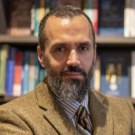
H. A. Hellyer
Senior Associate Fellow in International Security Studies, The Royal United Services Institute (RUSI); Non-resident Scholar, Carnegie Endowment for International Peace

Osama Abu Irshaid
Executive Director and Board Member, American Muslims for Palestine (AMP)
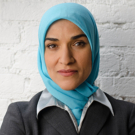
Dalia Mogahed
Scholar and Former Director of Research, Institute for Social Policy and Understanding

Kenneth Roth
Charles & Marie Robertson Visiting Professor, Princeton School for Public and International Affairs; Former Executive Director, Human Rights Watch

Wadie E. Said
Professor of Law and Dean’s Faculty Fellow, University of Colorado

Sarah Leah Whitson
Executive Director, Democracy for the Arab World Now (DAWN)

Sarah Yager
Washington Director, Human Rights Watch

James J. Zogby
Co-founder and President, Arab American Institute (AAI); Director, Zogby Research Services
Moderator
* Additional speakers to be announced
About the Conference
Arab Center Washington DC’s 9th Annual Conference is dedicated to discussing the 2024 presidential elections in the United States amid US policy toward the Gaza war. Experts will assess the current state and future of US democracy, explore the impact of the election results on US foreign policy in the Middle East and North Africa (MENA), and examine the potential changes in US global power and influence in light of US policy toward Israel’s war on Gaza. The various conference sessions will also address the implications of the election outcomes for democracy and human rights in MENA, international law and the global law-based order, regional geopolitics and shifting alliances, and the future of US foreign policy.
Topics to be addressed:
- Polling and predictions for election outcomes
- The impact of the Gaza war on election results
- The role of Arab/Muslim American and young/progressive voters in the elections
- US democracy at risk (limiting freedoms/protests, Trump’s fascism, etc.)
- Impact of election results on democracy and human rights in MENA
- Evolving US policy in MENA and shifting alliances: Biden vs. Trump
- US foreign policy and global standing after Gaza
- The global political, legal, and humanitarian impacts of US Role in the Gaza war
Agenda
Welcoming Remarks
Tamara Kharroub
Deputy Executive Director and Senior Fellow, Arab Center Washington DC
Opening Keynote Address
The Future of US Foreign Policy in a Changing World: Challenges, Prospects, and Recommendations
Over the past two decades, US foreign policy objectives in the MENA region have largely failed; from the invasion of Iraq to the war in Afghanistan, and US interventions in Syria, Libya and Yemen. Today, as the US continues to support Israel’s war on Gaza, it stands isolated in the world community, in opposition to international law, and at odds with its own population that is demanding an end to the war. This opening session will address the legacies of US foreign policy, the challenges facing the United States today, the factors impacting foreign policymaking in Washington, and prospects for reforming US politics, as well as recommendations for the next administration.
Jeffrey D. Sachs, Professor and Director of the Center for Sustainable Development, Columbia University; President of the UN Sustainable Development Solutions Network; SDG Advocate for UN Secretary General António Guterres; Former Special Advisor to UN Secretaries-General Kofi Annan, Ban Ki-moon, and António Guterres
Khalil E. Jahshan – Moderator
Executive Director, Arab Center Washington DC
Panel I
The Outcome of the US Presidential Election: Polling, Predictions, and the Impact of the Gaza War
This session specifically focuses on the potential outcomes of the 2024 presidential elections in the United States, exploring polls and surveys of various demographic groups and from different swing states. Panelists will discuss the impact of the Gaza war and US policy toward Israel/Palestine on election campaigning and results, the significance of the ‘uncommitted’ vote, the role of Arab and Muslim Americans especially in swing states, the politics and policies of the Democratic Party vis-a-vis progressive issues and voters, the prospects for a third-party candidate, and the structure of the two-party politics and electoral system in the United States.
Layla Elabed, Organizer, We the People Action Fund; Campaign Manager, Listen to Michigan
Osama Abu Irshaid, Executive Director and Board Member, American Muslims for Palestine (AMP)
Dalia Mogahed, Scholar and Former Director of Research, Institute for Social Policy and Understanding
James J. Zogby, Co-founder and President, Arab American Institute (AAI); Director, Zogby Research Services
Khalil E. Jahshan – Moderator
Executive Director, Arab Center Washington DC
Panel II
Threats to Democracy at Home and Abroad: Human Rights and Freedoms in US Domestic and Foreign Policy
The last few years have exposed the cracks in US democracy, most prominently through Trump’s authoritarian tendencies and the January 6 insurrection, and all the way to anti-BDS laws and the violent crackdown on campus protests opposing the war on Gaza. Additionally, US foreign policy regarding democratic governance and rights and freedoms in the MENA region has been consistently lacking under both republican and democratic administrations, with only slight differences in rhetoric. This session aims to examine the threats to democracy in the United States and in MENA, discuss US foreign policy toward democracy and human rights in the region, explore the impact of shifting regional and global alliances on prospects for democracy, and provide recommendations for the next administration regarding long-terms US interests in the Arab world.
Lana Baydas, Program Director, Center for Human Rights, American Bar Association
Matthew Duss, Executive Vice President, Center for International Policy
Kenneth Roth, Charles and Marie Robertson Visiting Professor, Princeton School for Public and International Affairs; Former Executive Director, Human Rights Watch
Sarah Leah Whitson, Executive Director, Democracy for the Arab World Now (DAWN)
Laurie King – Moderator
Teaching Professor of Anthropology, Georgetown University; Member of the Executive Board, Arab Center Washington DC
Luncheon Keynote Conversation
The Gaza War and the Role of the International Community: Global Political, Legal, and Humanitarian Implications
Since October 7, 2023, Israel has killed more than 40,000 Palestinians in Gaza, the majority of whom women and children. As Israel continues to target journalists, healthcare professionals, and humanitarian aid workers, there are at least 93,000 Palestinians injured and thousands arrested and tortured including sexually assaulted, while the majority of Gaza’s population suffers from displacement, famine, disease, and widespread destruction. This session will assess the role of western democracies–who claim to support human rights, international law, and humanitarian causes–in supporting and sustaining the human-made devastation in Gaza, the obligations of the United Nations and its member states, and the global short- and long-term implications of the failures to protect civilians, prevent genocide, and end the war.
Martin Griffiths, Former Under-Secretary-General for Humanitarian Affairs and Emergency Relief Coordinator, Office for the Coordination of Humanitarian Affairs (OCHA), United Nations
Yara M. Asi – Moderator
Non-Resident Fellow, Arab Center Washington DC; Assistant Professor, School of Global Health Management and Informatics, University of Central Florida.
Panel III
US Global Influence amidst the Gaza War: Implications for US Foreign Policy and the International Law-Based Order
The wars in Gaza and Ukraine have exposed the hypocrisy and double standards of the West, especially the world’s superpower the United States. For months after October 7, the US stood against the world in opposing a ceasefire in Gaza at the United Nations Security Council, ignoring its international obligations and obstructing the work of the ICJ and the ICC in preventing genocide and violations of international law, and continuing to fund and militarily supply Israel’s onslaught in Gaza, all of which have undermined US global standing and ability to invoke international law elsewhere. This session will discuss the impact of American policy toward the Gaza war on its global influence and standing, implications for the rules-based order and international law after Gaza, and recommendations for US foreign policy under the next administration after the 2024 presidential elections.
Phyllis Bennis, Fellow and Director of the New Internationalism Project, Institute for Policy Studies
H. A. Hellyer, Senior Associate Fellow in International Security Studies, The Royal United Services Institute (RUSI); Non-resident Scholar, Carnegie Endowment for International Peace
Wadie E. Said, Professor of Law and Dean’s Faculty Fellow, University of Colorado Law School
Sarah Yager, Washington Director, Human Rights Watch
Tamara Kharroub – Moderator
Deputy Executive Director and Senior Fellow, Arab Center Washington DC
To read the speaker bios and the full conference program, click here
Featured image credit: Shutterstock/Mike AZ



